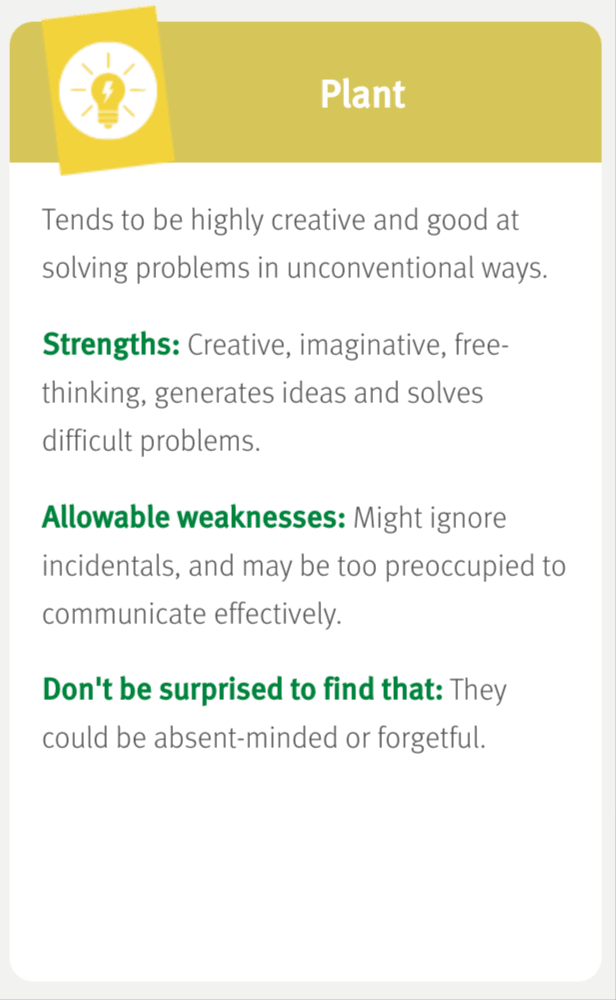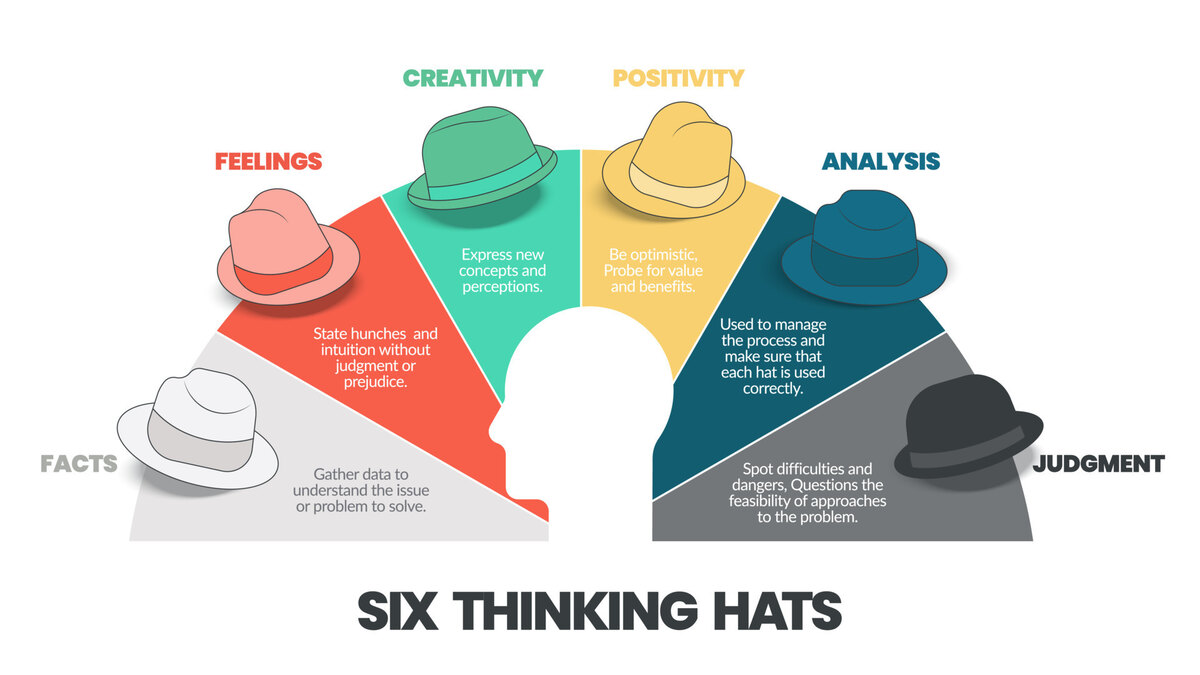TB871: Managing personality differences in teams (Belbin & Six Thinking Hats)
Note: this is a post reflecting on one of the modules of my MSc in Systems Thinking in Practice. You can see all of the related posts in this category.
As I hinted at in my last post, the value of knowing how people think and work is that it’s easier to put together high-performing teams and make better strategy. The Belbin Team Roles test I did 13 years ago had me almost off the scale as a ‘Plant’:

Activity 4.4 in the module materials (The Open University, 2020) asks us:
Do you think that this definition of the activities/behaviours required in an effective team has survived the test of time? Does it have the same meaning and significance in our hyper-connected, global world where climate catastrophe is around the corner?
I think the answer is in the question(s): the world has changed, and therefore the roles we need to play have changed too. Meredith Belbin came up with these team roles in the 1980s before the Web was invented. We live in a much different world to even the one I inhabited as a child.
The module materials (Ibid.) introduce another list of behaviours important to team effectiveness, taken from Pedler, Burgoyne and Boydell (1994):
- Proposing – a new concept, suggestion or course of action
- Giving information – offering facts, opinions or clarification
- Seeking information – seeking facts, opinions or clarification
- Supporting/building – declaring support or agreement with another, or extends another’s proposal
- Disagreeing – direct criticism, difference of opinion or disagreement with another’s ideas
- Defending/attacking – attacking another or defending own position – an emotional response
- Blocking/difficulty stating – blocking a proposal without offering alternatives, or even reasons
- Testing understanding – checking the meaning or understanding of another’s contribution
- Summarising – summarising and restating concisely the content of a previous discussion.
What I like about this is that, in a similar way to Edward de Bono’s Six Thinking Hats, it focuses on roles that people can play rather than typecasting people.

For example, I’m currently ‘project lead’ for some work that WAO is doing. That means that I’m doing a lot more attention-to-detail, planning, and box-ticking kind of work than I would usually. I’m playing a role, just as I do in meetings where I may play devil’s advocate, or a workshop where I ask the stupid question to get the conversation flowing.
That being said, I think it’s fair to say we have our ‘default’ behaviours and positions to which we naturally return. I think these can change over the course of our lifetimes, with a thread nevertheless running through them. For example, I’ve never been afraid of the consequences of speaking my mind, and have lived by the mantra that “people can only treat you the way you let them treat you.” That’s meant I’ve pissed off a lot of people and burned a fair few bridges. But, hey, my principles keep me warm at night 😉
References
The Open University (2020) ‘P4.1.2 Managing personality differences in teams’, TB871 Block 4 People stream [Online]. Available at https://learn2.open.ac.uk/mod/oucontent/view.php?id=2261494§ion=2.2 (Accessed 23 July 2024).
